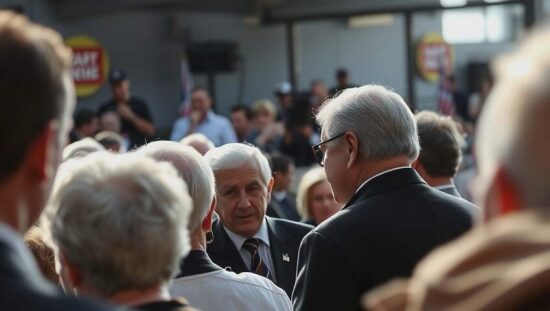The Alternative for Germany (AfD) is reportedly abandoning plans to introduce a standalone motion on the reinstatement of mandatory military service within the Bundestag, a significant shift reflecting internal divisions and strategic recalculations within the party. According to reports from “Der Stern”, the AfD parliamentary group’s executive committee intends to propose this retraction to its members on Tuesday, following a meeting held Monday afternoon.
This decision marks a victory for the AfD’s eastern state branches, particularly those aligned with Thuringia’s state leader, Björn Höcke, who had advocated for a delay. Party co-leaders Alice Weidel is also said to have actively campaigned for the move. While Daniel Tapp, Weidel’s spokesperson, confirmed only that the executive committee is recommending against submitting a separate motion, the impending vote by the entire parliamentary group indicates a concerted effort to manage the contentious issue.
The internal debate over mandatory military service has raged within the AfD for months, exposing deep ideological fault lines. While the concept is nominally included in the party’s foundational program, the situation escalated after parliamentary group defense policy spokesman Rüdiger Lucassen unilaterally transformed the official position into a formal opposition motion for the Bundestag, titled “Secure Germany’s Defense Capability – Reactivate Mandatory Service.
This move triggered a counter-response spearheaded by Höcke’s co-state leader, Stefan Möller, representing a coalition of two dozen AfD representatives. Their opposing motion argued that the debate surrounding conscription should be postponed “until the definitive end of the military conflict in Ukraine” and until Germany achieves a position of neutrality in the ongoing crisis. Following the executive committee’s recommendation, this opposing motion is also slated for withdrawal.
The retreat from both proposals highlights a deliberate effort to control the narrative and potentially garner wider appeal. However, it also risks alienating factions within the party that champion a more assertive stance on defense and national security, potentially fueling further internal tensions. The ultimate decision lies with the full parliamentary group, promising a revealing display of the power dynamics and ideological clashes shaping the AfD’s political maneuvering. The sudden shift in strategy also raises questions about how far the party is willing to compromise on its core tenets to navigate the complexities of the current geopolitical climate.





